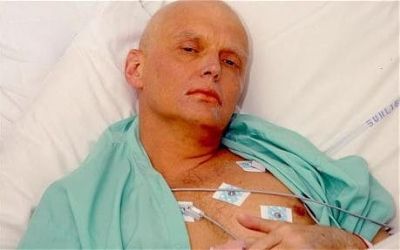On October 28, 2016, the United Nations will be holding elections for the UN Human Rights Council (UNHRC). According to the UN General Assembly resolution that created the Council (A/RES/60/251, adopted March 15, 2006): "when electing members of the Council, Member States shall take into account the contribution of candidates to the promotion and protection of human rights and their voluntary pledges and commitments made thereto." To that end, countries seeking membership sometimes submit "pledges" prior to elections.
Among those seeking a spot on the UNHRC is Russia. In its pledge, Russia made such statements as:
"2. Russia worked hard to make the Council an efficient and effective tool for promoting and protecting human rights throughout the world during the three terms of its membership in the Council (2006-2009, 2009-2012 and 2013-2016), and during its year-long status as an observer (2013). The Russian Federation intends to take further steps to incorporate in the work of the Council the fundamental principles of universality, non-selectivity, objectivity, equal treatment of all categories of human rights, and respect for diversity of cultures and civilizations. The decision of Russia to present its candidature for election to the Council for the period 2017-2019 stems from the determination to pursue a fair, mutually respectful and equal dialogue on human rights and fundamental freedoms.
3. Russia is firmly attached to such fundamental values as freedom, justice, life, well-being and human dignity, family traditions, political equality, integrity of the court system, responsibility of leadership, social guarantees and the eradication of poverty and corruption. Russia is also firmly committed to its international obligations in the field of human rights. We continue to pursue a policy of further strengthening democracy, the rule of law and respect for human rights and fundamental freedoms. Our efforts at the domestic level are aimed, in particular, at the following: (a) Giving effect to the social guarantees embodied in the Constitution; (b) Ensuring the broad participation of citizens, political parties and other social institutions in shaping State policy, including decision-making; (c) Improving the legal system and promoting integrity of the court system in order to eradicate corruption and ensure the rule of law; (d) Further expanding economic and entrepreneurial freedom; (e) Supporting the national traditions and cultures of the peoples of Russia as a principal factor in harmony within society, unity of the nation and stable development of the country.
4. At the international level, we see our tasks as the following: (a) To achieve respect for human rights and freedoms throughout the world through constructive international dialogue on the basis of the Universal Declaration of Human Rights, to utilize other possibilities in the field of human rights, including at the regional level, and to reject double standards and ensure respect for the national and historical characteristics of each State in the process of democratic transformations, without imposing borrowed value systems on anyone;..."
However, Russia's record demonstrates otherwise. According to the U.S. State Department's most recent annual report on human rights (released April 2016):
"The most significant human rights problems during the year involved:
1. Restrictions on the Ability to Choose One's Government and Freedoms of Expression, Assembly, Association, and the Media, as well as Internet Freedom: ... The government increasingly instituted a range of measures to suppress dissent. The government passed new repressive laws and selectively employed existing ones systematically to harass, discredit, prosecute, imprison, detain, fine, and suppress individuals and organizations engaged in activities critical of the government, including NGOs, independent media outlets, bloggers, the political opposition, and activists. Individuals and organizations that professed support for the government of Ukraine or opposed the Russian government's activities in Ukraine were especially targeted.
2. Political Prosecutions and Administration of Justice: Officials denied due process to defendants in politically motivated cases...; secret detentions and convictions based on treason and espionage charges; ...; and criminal cases opened against several other political activists and human rights advocates. The government stymied and stigmatized the work of NGOs through the "foreign agents" law and adopted an "undesirable foreign organization" law targeting non-Russian NGOs. Authorities failed to bring to justice the individuals responsible for the deaths of prominent journalists, activists, whistleblowers, and opposition politicians.
3. Government Discrimination against Racial, Ethnic, Religious, and Sexual Minorities: The government continued to discriminate against and selectively prosecute lesbian, gay, bisexual, transgender, and intersex (LGBTI) persons; members of some religious and ethnic minorities; and migrant workers...
Other problems reported during the year included allegations of torture and excessive force by law enforcement officials that sometimes led to deaths, prison overcrowding as well as substandard and sometimes life-threatening prison conditions, executive branch pressure on the judiciary; electoral irregularities, extensive official corruption, violence against women, limits on the rights of women (especially in the North Caucasus), trafficking in persons, discrimination against persons with disabilities, social stigmas against persons with HIV/AIDS, and limitations on workers' rights.
The government failed to take adequate steps to prosecute or punish most officials who committed abuses, resulting in a climate of impunity..."
The disparity between the pledge and the facts is not expected to make any difference to the votes of UN member states.
October 19, 2016
Russia Tells UN It "Ensures Broad Participation of Citizens" In Seeking UN "Human Rights" Council Seat While Its Citizens "Disappear"
Date
October 19, 2016
Title
Candidature of the Russian Federation to the Human Rights Council, 2017-2019 (position paper), A/71/81
Original Source

